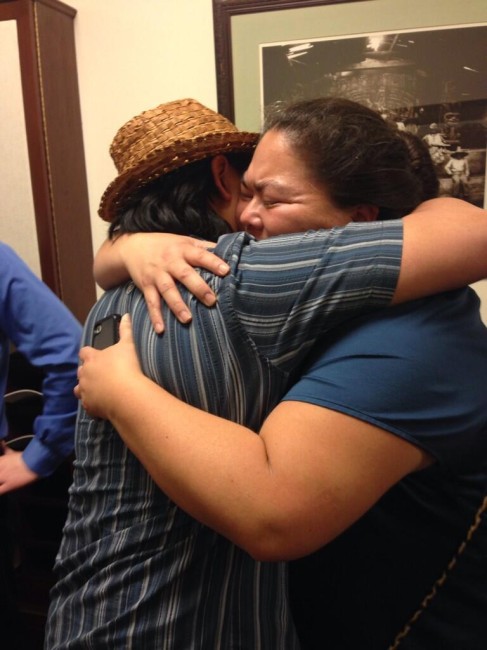In lieu of it being easy, immersion parenting without fluency is at least possible. Raising a child to be bilingual when you can't even speak another language is often like groping around in a dark room. You will eventually find what you are looking for, but you shouldn't expect to find it right away and you will probably feel ridiculous in the process. Here are a few points that might be helpful if you are in a similar situation.
- Learn the language! I should have finished Na Kai 'Ewalu a long time ago. Taking my own studies seriously models to my kids that there is value in bilingualism.
- Use what you know. It sounds so simple, but I have to really force myself - first languages are first for a reason. Even if its just a phrase a day - use it!
- Don't speak English when everyone else is speaking Hawaiian, even (especially) if they are okay with it. Every time you fall back on the comfort and safety of English, it becomes that much harder to potentially embarrass yourself next time.
- Do homework with your kids - and use their vocabulary. Counting, reading books, asking simple comprehension questions, these are all possible with super-basic language skills.
- Delegate. Any good leader will tell you that the best way to finish a big job is to farm out the little ones. Books, movies, internet, teachers, friends, Meet Ups, playgroups, etc. ANYONE who is willing to speak to/with you or your child in the target language should be on speed dial.
- Look for encouragement, but don't look in the direction of your kids. My kids are the first to correct, criticize and comment on any and all errors. And they aren't tactful like teachers/adults!
- Recognize the small victories. Every once in awhile I will overhear my kids talking to other people and when they say something like "yes, I speak Hawaiian and so does my mom" it provides me with that much more reason to plug on.
What about all those folks who are bilingual and chose to only speak English with their children. Why do they do that? Is it because of America's generally crappy attitude toward bilingualism? Is it because they figure their child won't be able to "use" that language? Is it for the sake of others in the house (spouses) being able to understand? Feel free to explain this one to me in the comments.









